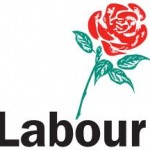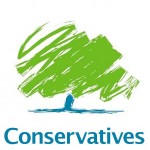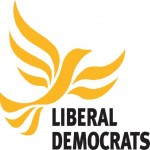Election: spare a thought for the arts this May
With the election looming and the future of the country in limbo, the arts sector has never been more threatened. Rightly key issues such as education, the NHS and Immigration are being focused on but it is important also to remember the significance of arts and culture within our society and consider how this will be threatened by the decision we make on May 7.
Politicians are scared to make drastic and honest statements about the arts sector and refuse to step up to the challenge of increasing opportunity and funding.
Part of the problem that causes the arts to feel it’s not getting its fair share is because politicians as individuals simply don’t value it. As Labour’s Chris Bryant pointed out that he’d tried to read Wolf Hall and played the cello at school but was shockingly bad. Despite this he is behind more funding for the arts outside of London and increasing education of the arts like the majority of the other parties. It is difficult to see any difference between what the various political parties stand points are on arts and culture, apart from that UKIP have little interest in the matter. Over all parties there is a lack of firm policy which is overridden by general statements about the importance of arts within education. Politicians are scared to make drastic and honest statements about the arts sector and refuse to step up to the challenge of increasing opportunity and funding within arts organisations, leading to the absence of absolute policies on the matter.
The culture debate took place on April 8 at the Royal Opera House. It was an opportunity for the public to see high profile politicians under scrutiny on their policies for the arts and creative industries. Questions were put to the panel by audience members, including industry professionals in the studio audience as well as those watching the live stream at home. The five main political parties were represented at the debate to answer what they would do for the arts if the public voted them into number 10. Below is a summary of what can be expected from each party. The SNP and Plaid Cymru had declined to take part in the debate.
 1. Work with public bodies to tackle the regional imbalance of arts funding
1. Work with public bodies to tackle the regional imbalance of arts funding
2. Ofsted only rewarding outstanding if creative subjects and cultural opportunities are offered on the curriculum
3. Strengthen creative education in schools and after school clubs, and ensure that publicly funded venues “open up their doors” to young people
4. Increasing the number of apprenticeships in the creative industries
5. Create a prime minister’s committee on the arts, bringing issues directly to the prime minister’s attention
 1. Enable cultural organisations to have greater financial autonomy to use their budgets as they see fit
1. Enable cultural organisations to have greater financial autonomy to use their budgets as they see fit
2. A new “modern world class” concert hall in London
3. Promises to back The Factory theatre planned in Manchester
4. Continue tax reliefs introduced for theatre, orchestras and films and expand them where possible
1. Review the BBC licence fee with a view to it’s reduction 
2. Scrap tuition fees for students studying science, technology, engineering, maths, or medical degrees but not those studying within the arts sector
 1. Shift responsibility for arts funding, where appropriate, from regional to local levels
1. Shift responsibility for arts funding, where appropriate, from regional to local levels
2. Promotion of community radio, television, live arts, etc. in both the Welsh and English languages
3. Maintain the BBC as the primary public service broadcaster, free of government interference, with funding guaranteed
4. Increase government arts funding by £500 million a year to restore the cuts made since 2010
5. Reduce VAT to 5% for live performances
1. Maintain free access to national museums and galleries, while giving these institutions greater autonomy
2. Protect the independence of the BBC while ensuring the Licence Fee does not rise faster than inflation, maintain Channel 4 in public ownership and protect the funding and editorial independence of Welsh language broadcasters
3. Support growth in the creative industries by continuing to support the Creative Industries Council, promoting creative skills and addressing the barriers to finance faced by small creative businesses


Comments